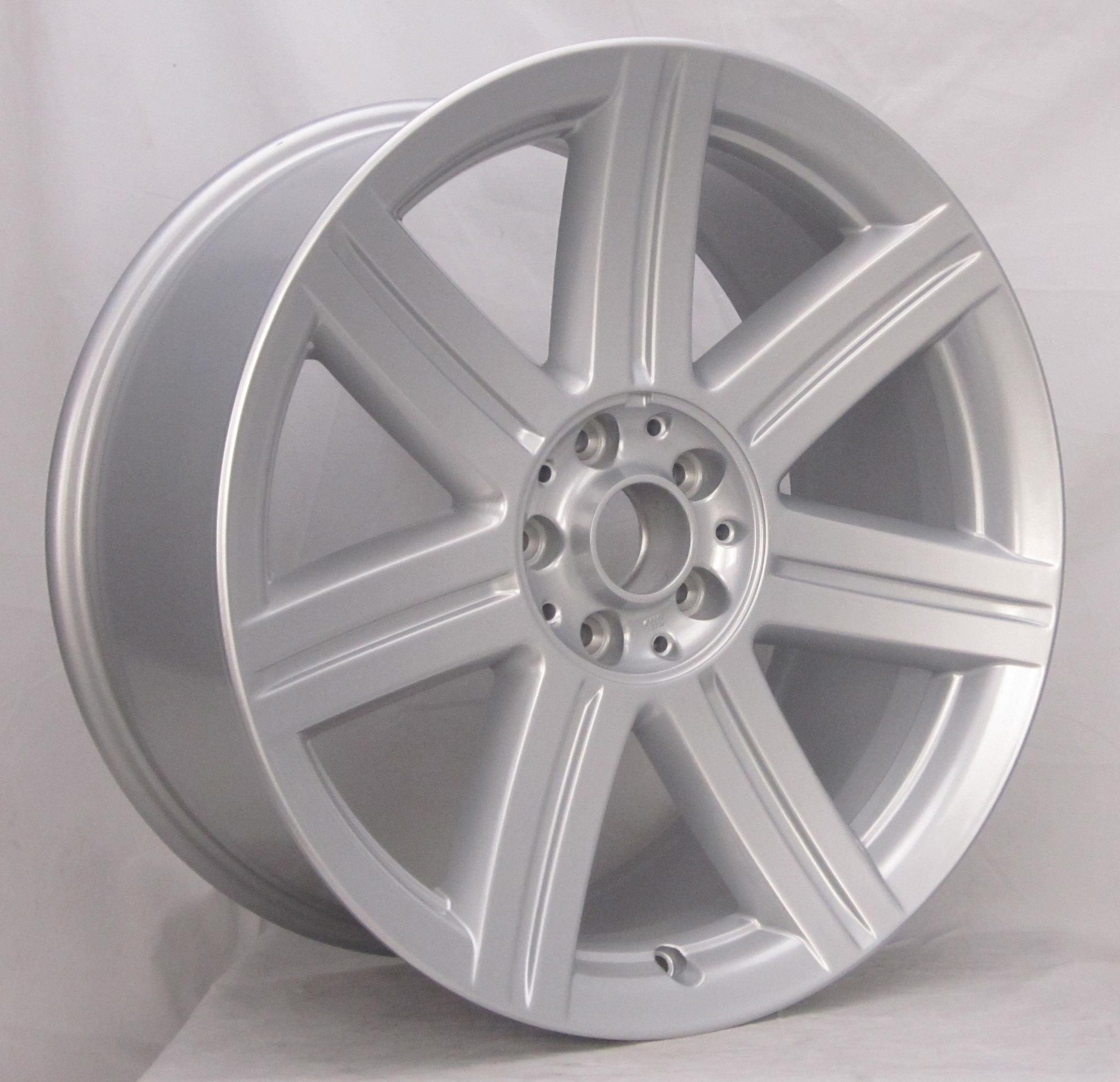In the 19th century the Europeans used steel wire as a support for bicycles, and this was the origin of the wire-spoke wheel.
Later, when motorbikes appeared, they were used directly on motorbikes, which had limited performance at that time, so there was nothing wrong with using wire spoke wheels.
As technology progressed and modern cars became more powerful and faster, the use of wire spoke wheels was no longer appropriate.
The difference between wire spoke wheels and die-cast monobloc wheels in one article
JWHEEL is here to explain the difference between wire spoke wheels and die-cast (forged) monobloc wheels.
The use of spokes on wheels predates the use of die-cast aluminium wheels by far, and in fact dates back to the time when man used horse-drawn carriages.
In the 19th century the Europeans used steel wire as a support for bicycles, and this was the origin of the wire-spoke wheel.
Later, when motorbikes appeared, they were used directly on motorbikes, which had limited performance at that time, so there was nothing wrong with using wire spoke wheels.
As technology progressed and modern cars became more powerful and faster, the use of wire spoke wheels was no longer appropriate.
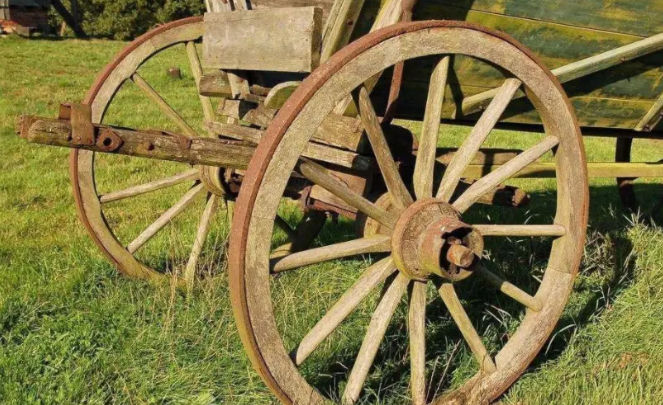
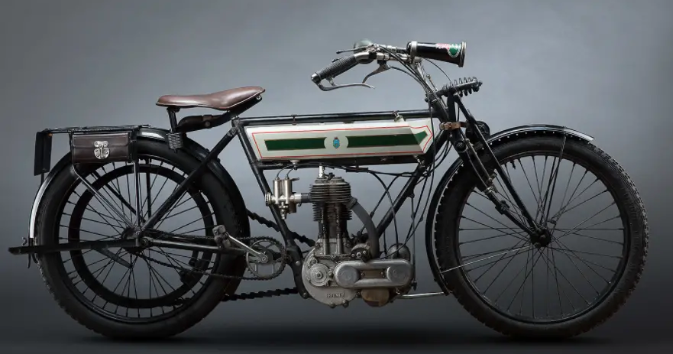
Firstly, as vacuum radial tyres had not yet appeared, wire spoke wheels could only be used with tyres with inner tubes, which generated a lot of heat at high speeds and were less and less suitable for use on high performance cars.
Secondly, the wire spoke wheels have a certain elastic deformation capacity, which is an advantage in off-road vehicles, but a disadvantage in high performance cars, where the road is the main driving road, as the instant torque output of the latter is extremely high, and when starting at high throttle or accelerating sharply, the wire spoke wheels are subject to instant deformation when driven by strong power, which affects the acceleration ability of the vehicle.
Last but not least, due to their structure, wire spoke wheels are relatively less precise than die-cast monobloc wheels and have a greater lateral sway at high speeds than die-cast monobloc wheels, which makes them less stable than die-cast monobloc wheels at high speeds.
For these reasons, the wire spoke wheel gradually gives way to the die-cast monobloc wheel.
However, as the oldest wheel construction, wire spoke wheels are not completely out of fashion and are still the right choice for off-road vehicles, hardcore ADVs and some American cruisers and vintage cars.
As already mentioned, wire spoked wheels have a good elastic deformation capacity, which can be used to absorb the demands of off-road or hardcore ADVs on rough roads, with a high cushioning capacity that can effectively filter the impact of the road and make the ride more comfortable.
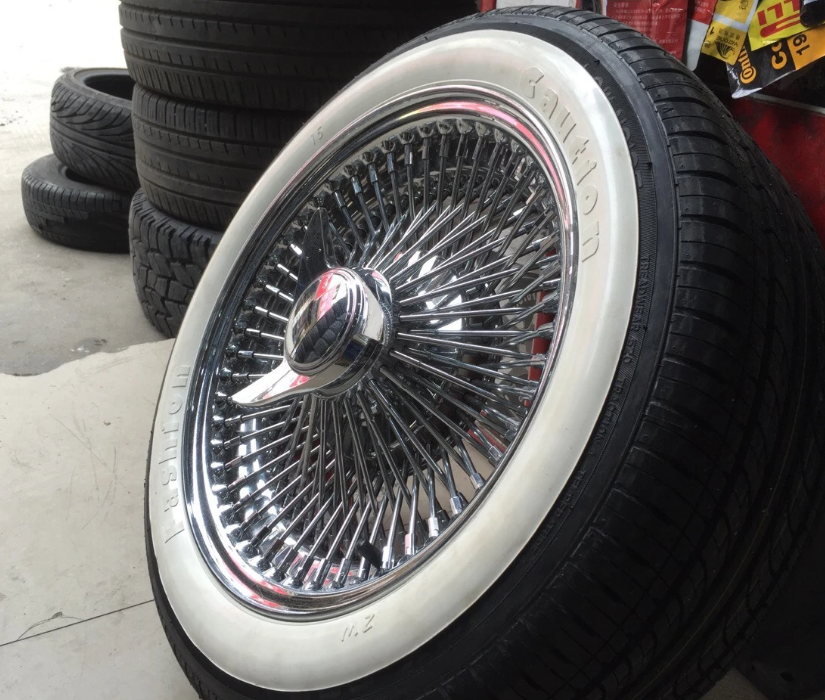
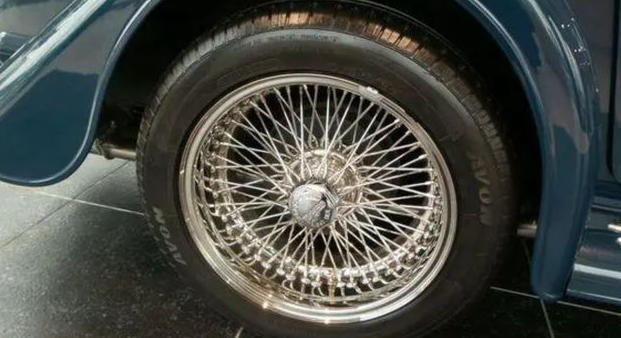
American cruisers and vintage cars choose wire spoked wheels, firstly because of the style, after all, these old models were using wire spoked wheels at the very beginning, and secondly, American cruisers and vintage cars are generally not concerned with performance and have no pursuit for high speed driving.
A brief summary of the advantages and disadvantages of wire spoke wheels versus die-cast (or forged) wheels.
To summarise the advantages of wire spoke wheels.
Relatively cheap construction.
lighter and lighter underspring mass.
Less wind resistance during travel.
Comfortable riding.
better reliability in extreme road conditions and no air leaks due to deformation of the wheel resulting in poor sealing.
more style in models where style is required.
Cheap price.
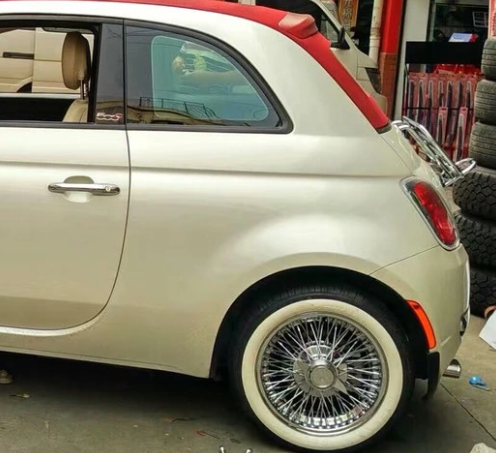
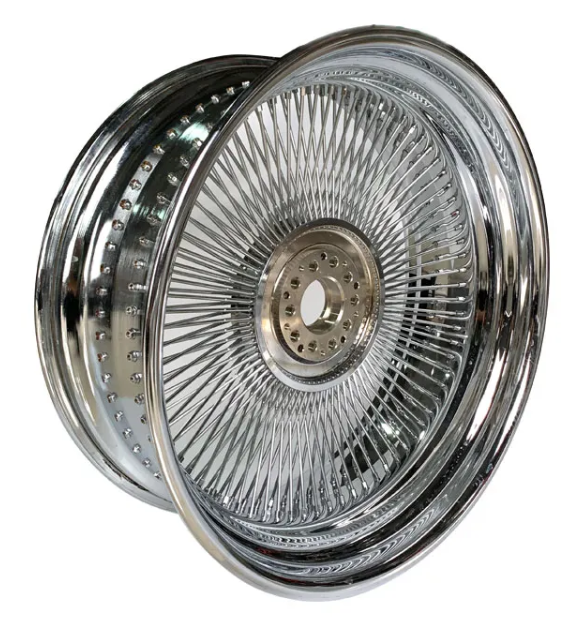
Disadvantages.
Complicated structure, with spokes, spoke caps, central axle, etc., and the need to use with an inner tube (except for some tubeless wire spoke wheels), which brings maintenance problems, and as anyone who plays off-road knows, it is necessary to go home and re-adjust the spokes after a good time, and it is more troublesome to repair a broken tyre (except for tubeless wire spoke wheels).
In the event of a puncture, a tyre with an inner tube in the form of a wire spoke wheel will immediately deflate.
cannot withstand high instantaneous torque output and are subject to some deformation, making them unsuitable for use on high performance motorbikes.
The high speed stability is not good and the lateral sway is greater than that of a die-cast monobloc wheel.
Advantages and disadvantages of the die-cast monobloc wheel: Complementary to the wire spoke wheel, the advantages of the former are exactly the disadvantages of the latter.
Jwheel, as an professional wheel manufacturer, concentrates in R&D and manufacturing of aluminum alloy wheels, including casting wheels, forging wheels and flow-form wheels. The products of it have passed the certifications of SEI、SEMA,VIA, JWL, JWL-T, TUV and so on. Since establishment, Jwheel has been developing steadily, with rich experience of designing and producing aluminum alloy wheels. It has earned the appreciation of both domestic market and foreign market with its high technology, good quality and customer service. It provided OEM service to many international brands like Vossen, OE Wheel, TSW, Rays, ProLine, Oxygen, AUTEC, etc., and it also provide ODM service, that is, for producing a new wheel, you can just provide a sketch, drawing or picture, and then Jwheel will finish the rest parts. By the way, the MOQ of forging wheels is four. (For more information, just go to the website: https://www.jjjwheel.com)
J128 18x.7.5 19x9 35/22 112x5 66.5 SS/S68AR/A 700KG
